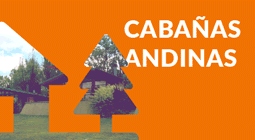Informal holiday put in check the hotel profitability in Argentina
After a series of informal lodging complaints made by Hotelier Gastronomic Business Federation of Argentina (FEHGRA) regional coordinators continued to question the lack of parity in taxation rights and obligations, and demanded that the states municipal, provincial and national take action on the matter to “launder” the activity and end the unfair competition.
In a press round FEHGRA headquarters in Buenos Aires, representatives of different regions of Argentina expressed concern at the “excessive” advance of informal accommodation, marketed by 99% over the Internet, and It delays a legislative solution to the issue of Intellectual Property Rights to be paid to five different entities.
According to international surveys cited by Jordi Busquet s, vice president of the International Hotel & Restaurant Association (IH & RA) and member of FEHGRA, “in urban cities today 48% of total supply is informal accommodation in cities Beach 40%. ” In Argentina it is estimated that unregistered places exceed 600,000.
“Not that we are opposed to vacation there, we want to compete with the same conditions and taxation in order to create a framework of fair competition,” said Alejandro Moroni, secretary of FEHGRA adding that it is necessary to “combat informality “because its existence” speaks ill of a destination. ”
Last year he got AFIP taking a decision to require controls through real estate, this measure came into effect on March 1 this year (AFIP applies to tourist information regime term rentals), but argue that it is not enough and that efforts are being made to the Rent Act is amended.
Regional coordinators agree that progress has been informal holiday with the growth of Internet and P2P platforms, and in parts of Argentina is due to the soy boom, since the money earned went to buildings they ended up collapsing real estate and so he turned to the holiday rental.
In turn, they noted that “the concern is not only the loss of money, but the risk of passengers going to illegal accommodation where provided to many non lawful things” directly harming the reputation of a destination and the country general.
When referring to the uneven playing field, Moroni stated that “we have to give a price that includes national, provincial and municipal tax burden could operate and compete against someone who is not registered, charges and weighing not taxed. What is given is a policy of dumping (lower price) and the customer migrates to the cheapest offer and leaves you misplaced “.
In Argentina there are more than 600,000 informal spaces.
“People think the hotel industry is doing very well because there are seasons with a lot of movement, but the reality is that it takes place within the hotel industry registered but in the non-regulated,” said Secretary of FEHGRA, adding that ” business is very complicated and the profitability of the hotel industry has fallen precipitously because you can not update the rates by a number of factors, one of them informal competition that we have. ”
Besides the lack of regulation and control, payment of Intellectual Rights also undermines the hotel because they must contemplate when setting rates. It is worth remembering that they are obliged to pay for the public dissemination of the Argentina Society of Authors and Composers (SADAIC), General Society of Authors of Argentina (ARGENTORES) “protected repertoires”; Argentina Association of Interpreters (AADI); Argentina Chamber of Phonographic Producers (CAPIF); Argentina Association of Interpreters (AADI); and SAGAI.
“In order to exploit the activity we pay five entities that have rights regulated and this makes competition put more marginal,” Moroni said, because “the employer has to pay for mouth, high or low season if it is a place of tourism, and the entities charged by a fixed structure, whether is full or empty. ”
Given this, Jordi Busquets reiterated that “here is not against anyone, what is being requested is that new players are dutiable, as they are in this case the members of the 63 subsidiaries of FEHGRA”.
Specific requests
1) The same tax framework hotels and informal accommodation apply
2) To request accommodation platforms marketed to register as travel agents
3) That the same national security protocols apply to informal accommodation
4) Adaptation of the existing standard for intellectual property rights to achieve fairness and balance of rights and interests of those involved
5) That the provincial government provide guarantees tourists making the apartments for rent have liability insurance, signage, emergency plan, rights to information (registration record, prices, plates, book claims, data protection, information equipment, etc.).
6) That the knowledge and approval of the neighbors about the existence of departments that are intended for temporary tourist rental is contemplated.
7) Requiring licensing of economic activity and establish a zoning / contingency to determine where different services can provide tourist accommodation to avoid damaging coexistence, load capacity and the deterioration of the environment and external image of the destination.





